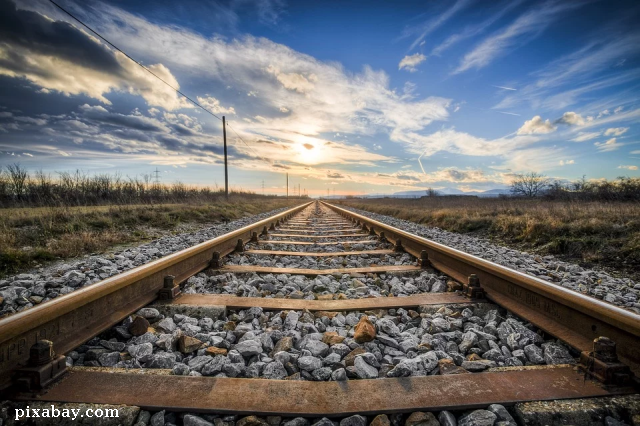Seeing the world by train: accounts by Romanian travellers
In Romania, railroads were first built after the union of Moldavia and Wallachia in 1859

Steliu Lambru, 04.01.2021, 14:00
One of the greatest inventions of mankind is the railway, and the changes it brought about in modern world have been outstanding. Even after other means of transportation were discovered, railway remained the favourite way to travel for many, and, improved from one generation to the next, it still has a great future ahead of it.
In Romania, railroads were first built after the union of Moldavia and Wallachia in 1859 and entailed a radical change in the way the world was perceived. Romanians started to travel increasingly longer distances and to write about what they saw.
Historian Radu Mârza is a professor with Babeș-Bolyai University in Cluj, and author of a book entitled “Romanian travellers looking out the train window: a tentative cultural history (1830-1930). We asked Radu Mârza what would Romanian travellers see out the train windows?
“They would see lots of things. At first sight, they seem to be very interested in landscapes. But after I went through a lot of sources, I reached the conclusion that their primary interest is not so much the landscape, but the people. They look out the window at the people outside, the people in railway stations, and, not least, the people travelling alongside them on trains. They would take an interest in the places they visit, but the concept of a natural landscape, which was the starting point of my research, only catches the Romanian travellers attention later on, around the turn of the 20th century. For instance, A. D. Xenopol wrote beautiful pages about the Semmering railroad in Austria, or about his crossing the Alps by train. I could also mention Mihail Sadoveanu, who travelled to the Netherlands in the 1920s and was interested not so much in nature, but in the human presence: from the people working their gardens to the very modern image of the Dutch towns where railroads cross roads and canals. He was interested in the Dutch plants, electricity networks, railway stations.
What railroads brought about was mobility: the movement of commodities, of businesses, and, above all, of people.
“Mobility grew spectacularly compared to previous times and previous means of transportation. For example, the train journey from Bucharest to Karlsbad, Karlovy Vary in todays Czech Republic, would take around 72 hours in the 1920s, as compared to a week or two on the road in pre-railway times. So mobility simply exploded. And obviously this increased mobility helped people travel longer distances, more easily and comfortably. The railway car is at the same time a place of interaction and non-interaction. People can engage in a dialogue, in an interaction with their fellow passengers, but there are also travellers who are unwilling to interact, who just want to be left alone. Sadoveanu has a paragraph about how much he longed to be left alone, while the great novelist Liviu Rebreanu also tells us about the insistence with which another train passenger asked him to engage in conversation.
But trains can also be dark places, places of crimes and even murder. We asked Radu Mârza whether Romanian travellers talk about this side as well:
“I havent seen accounts of this kind, but I do remember a story by George Bariț, about a very interesting experience during his travels in Germany in 1852. He says in the Magdeburg railway station, where the train arrived at night, he was amazed to see 4 tracks going to 4 different directions, which was absolutely astonishing for him. And one of the funny things he noticed written on the walls of the station was a warning saying, ‘Beware of pickpockets!
Railroads connected not only people, but also provinces, countries and continents. Radu Mârza told us that this connection was not only political in nature:
“In the Old Kingdom of Romania, this was quite evident, and 19th Century travellers say that themselves. They understand that the railway is a means of connecting the country, not necessarily for political or sentimental reasons, but for the purpose of mobility and communication. And while in the West, in the beginning there were some reservations and criticism concerning trains, this was not the case in our part of the world. This is confirmed by the number of passengers, the number of tickets sold, which is quite relevant because it proves that from the very beginning the Romanian public welcomed train traveling with open arms.
Romanians discovered the world from the train window and enjoyed it greatly. And the world, in turn, became smaller, more familiar, and more welcoming. (translated by: A.M. Popescu)




























